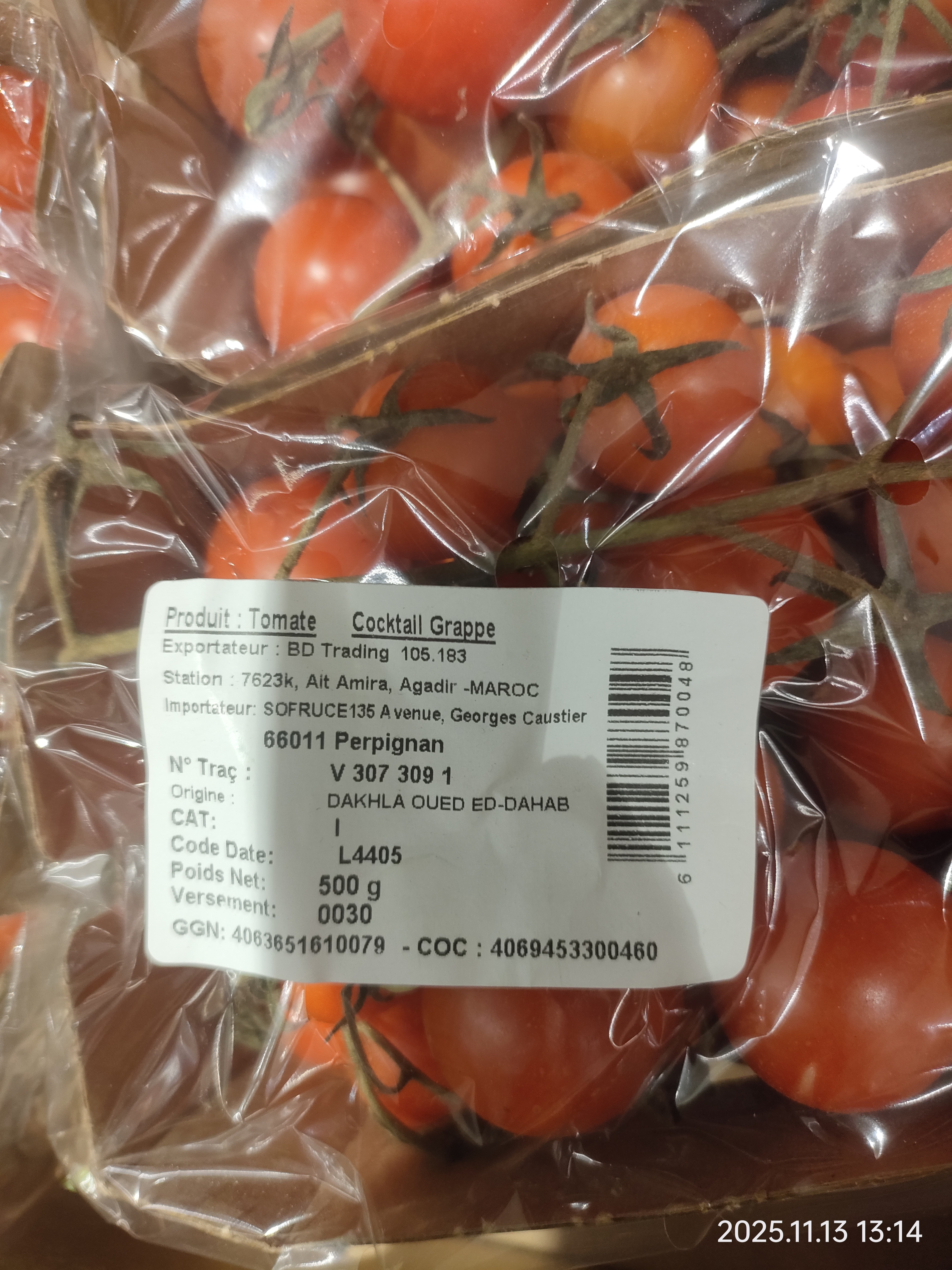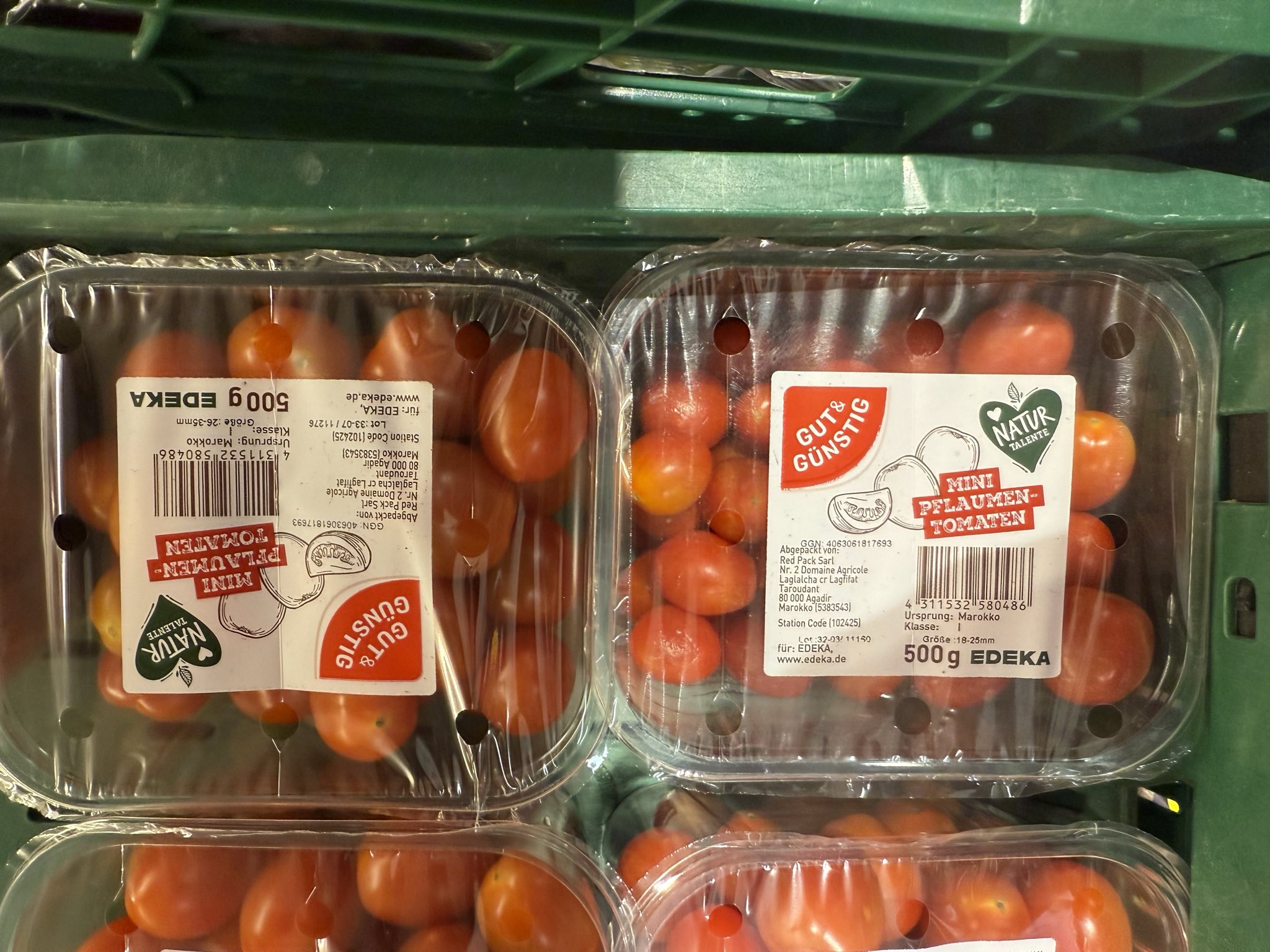Occupation tomatoes reached the US

The controversial tomatoes from occupied Western Sahara that a Norwegian importer has refused to import, have reached the US. Requirements from US government that tomatoes from Dakhla need to be certified by Western Sahara authorities seem to have been altered.
Published 02 May 2009
The first tomato shipments from occupied Western Sahara to the US were made in 2007, and the local producer Azura have plans of further exports across the Atlantic.
A US representative of the tomato producer in occupied Western Sahara, said to the US government that they intend to comply with the US-Moroccan Free Trade Agreement – which ironically excludes inclusion of Western Sahara produce. Mystically enough, the first cargo from 2007 is not to be found in US government statistics.
US demanded Western Sahara certificate
United States Department of Agriculture enforces strict health regulations on imported food products. On its homepages, it has for a long time been stated that the Ministry of Agriculture of Western Sahara must certify and officially seal the tomatoes prior to shipping to US ports, but it is not known if this was ever done.
Import requirements
1 Phytosanitary Certificate, Pest-Free Inspection: If the tomatoes transit fruit fly supporting areas of Europe and South America, they must be sealed by the Ministry of Agriculture of Western Sahara and the official seal must appear on the phytosanitary certificate. Tomatoes must arrive at the U.S. port of entry in insect-proof cartons or cartons covered with an insect-proof tarpaulin.
2 Phytosanitary Certificate, Pest-Free Inspection: Must be accompanied by a phytosanitary certificate stating that "These tomatoes were grown in registered greenhouses in Dahkla Province, Western Sahara and were pink at the time of packing." Tomatoes must arrive at the U.S. port of entry in insect-proof cartons or cartons covered with an insect-proof tarpaulin.
Download the US Department of Agriculture homepages as of 26 December 2008.The statement in the box to the right was until recently found on US government’s homepages.
These demands are also mentioned in the Fresh Fruits and Vegetables Import Manual from 2008, a document written for US regulatory offices who work at US border locations, including customs. Download the manual here.
But some time between December 2008 and May 2009, the regulations on the Ministry of Agriculture’s homepages were changed. The reference to the Ministry of Agriculture of Western Sahara was removed from the pages. See the current pages here, (or download).
It is not clear whether the relevant Western Sahara ministry ever certified the tomatoes that already arrived the US. The Western Sahara republic is recognised by more than 80 states worldwide, but US is not among them. On the other side, the US does not recognise the Moroccan claims to Western Sahara.
The possible future US imports of tomatoes from Moroccan firms inside occupied Western Sahara will of course remain a highly controversial issue, politically as well as ethically. The exporter of tomatoes in occupied Western Sahara, is Azura, a French-Moroccan firm, that employs hundreds of Moroccan civilians in the occupied country.
One of the biggest Norwegian grocery chains, and major vegetable importer Coop, in March this year gave strict orders to Azura to not include Western Sahara produce among the tomato cargos they import from Azura in Morocco proper.
In addition to the evident politico-ethical consequences, importing from Morocco’s neighbouring country Western Sahara is also an interesting question of US tariff.
The US-Moroccan 2004 Free Trade Agreement does not include produce from occupied Western Sahara. This has been made clear by the former US Trade Representative Robert Zoellick.
Based on the statement from the US Trade Representative, is not probable that US Customs would accept tariff reductions from Western Sahara, which might otherwise be possible for tomatoes from Morocco. On the other hand, it could theoretically be possible if the producers try to circumvent the US regulations by falsely labelling Western Sahara produce as "Moroccan".
Today, there seem to be plans for increased exports from occupied Western Sahara to the US, but it is not clear whether tariff reductions are claimed with reference to the US-Moroccan FTA.
An "initial, albeit small, test shipment” was exported from Dakhla to the US in April 2007, according to a letter from Azura’s US representative Bernstein Consulting Inc. in Virginia (davbernst@aol.com) to Animal & Plant Health Inspection Services on 15 July 2008.
"In the case of shipments to the United States, we are mindful of the great importance of complete compliance with all applicable laws and regulations as we enter the new United States-Morocco Free Trade Agreement", write the representative. Azura also underlines their wish to "expand the exports (...) consistent with the recently adopted US-Morocco Free Trade Agreement”.
The representative also states that the greenhouse in Dakhla area in 2006 was "the area first subject to special USA/Morocco tomato protocol in 2007".
On 15 May 2008, the company Azura stated that they had carried out a shipment to the US the month before. The shipment "passed all controls on arrival in America", and was carried out by airfreight. It is not clear from the Azura release whether the exact origin of the tomatoes, whether they were from the occupied city of Dakhla, or from regions within Morocco.
No sign of April 2007 shipment
According to the figures from US Census Bureau's foreign trade statistics, there were no shipments at all from Western Sahara to the US in April 2007, to the contrary of what Azura representative mentions. Nor were any imports mentioned in the US for the period of April-May 2008.
In 2007, there were only registered some amounts of exports of unknown content from Western Sahara to US in November and December 2007. Another export of unknown content was carried out from Western Sahara to the US in October 2008.
The exports from Western Sahara to the US amounted to 4769 dollars in 2007 and 4200 in 2008. The exports from the US to Western Sahara, on the other hand, was in 2008 91132 dollars, a decline from 344442 dollars in 2007.
News
EU’s labelling chaos already hitting supermarkets
A packet of cherry tomatoes sold this week in a French supermarket illustrates the confusion triggered by the European Commission’s rushed attempt to adapt EU consumer and trade rules to Morocco’s claims over occupied Western Sahara.
17 November 2025
Beware of products carrying a “GGN” code
Tomatoes from occupied Western Sahara, certified by GLOBALG.A.P., are being sold in German grocery stores with a false country of origin.
05 September 2025
First season in Switzerland without occupation tomatoes?
From this winter on, Swiss supermarkets will probably, for the first time, no longer sell tomatoes from occupied Western Sahara.
18 November 2016
Transparently unethical: Western Saharan melons are not from Morocco
An example of doing the wrong thing the right way: Swiss supermarket chain Migros still imports from occupied Western Sahara, but is at least honest about it to its customers.
11 March 2014



